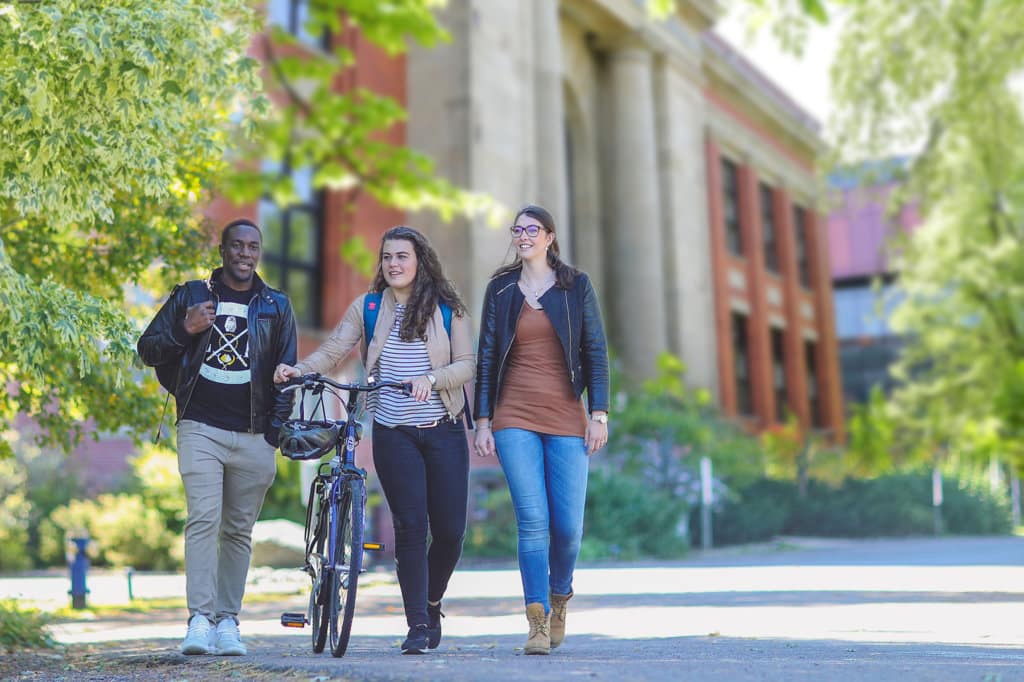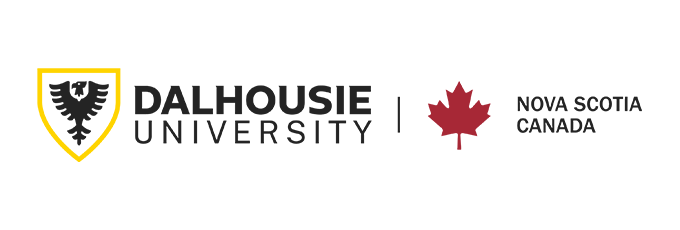Real-world projects. Hands-on learning. An incredibly safe and comfortable setting. These are the words Mehvish Sayed used to define her education at Dalhousie University.
“One of my most memorable experiences was collaborating with a diverse group of classmates on an urban design project where we had different ideas come together for the project,” shares the recent Master of Planning (MPlan) graduate. “It highlighted the importance of inclusivity and cultural sensitivity in urban planning.”
The project titled “Accessible Parking Spots in Yarmouth” was part of an independent project course in her programme. It required students to develop an audit tool for accessibility and functionality.
Sayed’s experience reflects one of the crucial exposures that complements programmes offered by the Faculty of Architecture and Planning. These include the Bachelor of Environmental Design Studies (BEDS) and Master of Architecture (MArch) by the School of Architecture, as well as the Bachelor of Community Design (BCD) and Master of Planning (MPlan ) by the School of Planning.
While these programmes provide theoretical grounding, hands-on experience is equally important. In Free Labs, BEDS and MArch students work as collaborative teams on projects that address topical design-build concepts in sustainability, net-zero design, and construction material modelling. Collaborative student teams receive mentorship from faculty members, practicing architects, and project clients.
BCD and MPlan students learn about the field of planning through visits to significant planning sites and collaborating on community projects. Most recently, Dr. Lisa Berglund led a group of MPlan students to New York as part of the International Field Trip course, which included trips to the Columbia Graduate School of Architecture, Planning, and Preservation, Hudson Yards and the Stonewall Monument.

Dalhousie University is not only a member of the U15 Group of Canadian Universities, but its programmes are some of the most experiential too. Source: Dalhousie University
Whenever possible, these students work with municipalities, non-profit organisations, community associations, transportation authorities, and business improvement associations on urban design or planning projects that address current design demands like accessibility and functionality needs within a community or city. These projects are integrated into the BCD and MPlan programmes.
Little wonder why Dalhousie University places among the top 100 universities in the world for their support of the United Nations’ Sustainable Development Goals.
What’s more, cooperative education programmes make students confident and ready for the world of work. Dalhousie is one of the few architecture and planning programmes in Canada that offers cooperative education as part of its curriculum, a practice that dates back to 1970. BEDS, MArch, and MPlan students complete one or more co-op work terms at locations across Canada and abroad. Students in the BCD Honours programme are placed in internships.
In these placements, all students within the Faculty of Architecture and Planning can tap into a network of industry professionals and learn from experts in the field. Some have the chance to work with the PEACH Research Unit, a team of dedicated faculty members, students, and community partners who lead and support projects exploring how planning can better achieve more equitable, accessible, and healthy communities.
Another co-op placement opportunity sees students working with the Dalhousie Transportation Collaboratory (DalTRAC), a multidisciplinary research facility dedicated to advancing transport engineering and planning research and practice at Dalhousie University.

The Faculty of Architecture and Planning firmly believes that work placements are a crucial part of a student’s journey to becoming a professional architect or planner. Source: Dalhousie University
Students are paid market-competitive salaries in a professional workplace. When they graduate, they’ll have a suite of skills that distinguish them from others who did not take part in co-op placements. Their degree has a co-op designation too, further signalling their career readiness.
Finding a co-op placement is made easier with the Science, Information Technology, Engineering Cooperative Education Office. They manage cooperative work placements and internships, maintain the myCareer online portal, and are the principal contact for practice-based courses.
It’s how the faculty has a co-op placement rate that’s currently greater than 95%. The Planning and Architecture co-op programmes are also accredited through national peer review and highly respected by employers as well as graduating students like Sayed.
“One thing I believe potential international students should know about Dal is its supportive and inclusive learning environment, which encourages students to explore different opportunities professionally,” says the MPlan graduate.
The best part? Located in Nova Scotia and surrounded by ocean, with 3,000 miles of coastline, aspiring architects and planners study at the Sexton Campus based in the downtown core of Halifax, ranked as Canada’s second fastest growing city in 2020.
Follow Dalhousie University’s Faculty of Architecture and Planning on Facebook, X, Instagram, LinkedIn.













